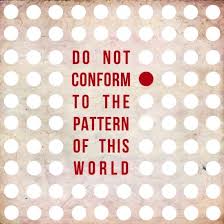(Originally published 5/10/2020 during the lockdown)
If possible, to the best of your ability, live at peace with all people. (Romans 12:18 CEB)
Back in Part 3, we gave some examples of the characteristics we ought to be manifesting as we cling to what is good. Here are some more practical tips from Romans 12 on how to walk this out.
14 Bless people who harass you—bless and don’t curse them.
Most people know that Jesus commanded us to love our enemies. That notion was just as counter-intuitive 2,000 years ago as it is today. If we have the capacity for hatred, who better to bear the brunt of it but our enemies? Isn’t that what enemies are for?
Not so much, as it turns out. Even as Jesus was hanging on the cross, He forgave the people that put Him there.
Christians all around the world experience persecution at many levels. Since Truth Mission has readers all over the world, what you are going through as you read this could be quite different than my experience.
Some of you may be harassed on social media. Some of you may be feeling heat from the government. Some of you may actually have been beaten, fired from a job, or had loved ones tortured and killed for their faith.
There are two things we need to remember though. The first is that the people who persecute us are not our real enemies. We have one Enemy who seeks our destruction.
The second thing is that we have no control whatsoever over how other people respond to the promptings of the Enemy. We do, however have control over how we respond to the promptings of the Holy Spirit.
Therefore, to the best of our ability, we need to follow the example set in Proverbs 25:21-22:
If your enemies are starving, feed them some bread; if they are thirsty, give them water to drink. By doing this, you will heap burning coals on their heads, and the Lord will reward you.
The “burning coals” bit may refer to an Egyptian custom where people would carry a pan of hot coals on their heads as a sign of repentance. So the idea here is that if someone is harassing you, and you respond with a blessing instead of a curse, they may take note of that and see you, and God THROUGH you, in a different way.
Now will that happen every time? No, of course not. But if it doesn’t, that’s not your problem. To the best of your ability, you have followed Christ’s command. By your actions, you have shared the Gospel and offered a tacit invitation for your “enemies” to turn from their ways and join in the freedom that you enjoy. But it is up to them to RSVP to your invitation.
15 Be happy with those who are happy, and cry with those who are crying.
A healthy church functions as a family, so we always need to be aware of and involved with one another’s lives.
We celebrate together at weddings, graduations and baby showers. We also walk alongside each other at funerals, during illnesses, or when children go astray.
This unity has never been more important than it is right now. As I type this, we have been on COVID-19 lockdown for about eight weeks. The Enemy has used this “pandemic” as an opportunity to scatter the body of Christ by influencing our State government to keep the churches closed for far longer than necessary.
However, to the best of our ability, we must rise up inside this. We need to get over our technophobia and learn how to do Zoom meetings and participate in online church. Yes, it’s not the same as meeting in person, but a connection is a connection. We can’t afford to just float away from each other just because meeting virtually is inconvenient.
We must stay in the habit of gathering, not just for our own sakes, but for the sakes of those who do not have a church community. Think about it. If you are feeling lonely and disconnected right now, and you HAVE a church family, how do you think the people feel who have no one to do life with? These are the people we need to be reaching out to. They are more open than ever right now for conversations. So have some.
16 Consider everyone as equal, and don’t think that you’re better than anyone else. Instead, associate with people who have no status. Don’t think that you’re so smart.
And while you’re planning those conversations, which may be out of your comfort zone anyway, I would like to challenge you further to have conversations with people who aren’t like you. If God’s invitation is open to everyone, and he uses us to extend that invitation, then we should be doing this anyway.
By all means, we should talk to the people we’re around every day. However, we must also remember that someone who doesn’t live in our neighborhood or work in our office or walk in our social circle also has a gift and a passion that God gave them to build His Church. We need that person just as much as he or she needs us.
Are you educated? Think of the uneducated people you know. Do you see how hard many of them work, because they haven’t had the occupational privileges that come with a college degree? Don’t you think your church needs someone with that work ethic using spiritual gifts they may not even be aware of until you invite them in?
Are you financially well-off? Try walking your Labradoodle on the other side of the tracks today and wave to everybody you see. (Or go shake hands once we’re done with social distancing.) That act by itself won’t save many souls, but you have to start somewhere.
Are you well-versed in scripture? Instead of correcting people who misinterpret the Bible in your Facebook feed, maybe you could start an online Bible study group with them and ask them to invite friends that have questions.
Bottom line—if we are all equal in the eyes of God, then we should be all equal in one another’s eyes as well.
17 Never pay back evil with more evil. Do things in such a way that everyone can see you are honorable. (NLT)
This one is a challenge for all of us. Our first instinct when someone wrongs us is to get even with our harasser. Some people just repress that instinct better than others.
Nevertheless, repress it we must. To the best of our ability, we must leave room for God to deal with our accusers.
Revenge is a control issue. When we are wronged, we feel that we must take control of the situation by restoring balance to the equation. If we take an eye for an eye or a tooth for a tooth, then we feel that we are restoring the equilibrium of justice.
But if that were our job, then what would be the purpose of Judgment Day?
A reasonable assumption for those who have put their trust in Jesus is that God is in control. And if God is in control, then the only control we need to be concerned with is self-control.
Therefore, to the best of our ability, we use this self-control to resist conforming to the pattern of this world. We use it to restrain ourselves from following our own understanding when discerning what is evil from what is good. Finally, we exercise our self-control to avoid being conquered by evil, but rather to conquer evil by doing good.
That sounds reasonable, right?



